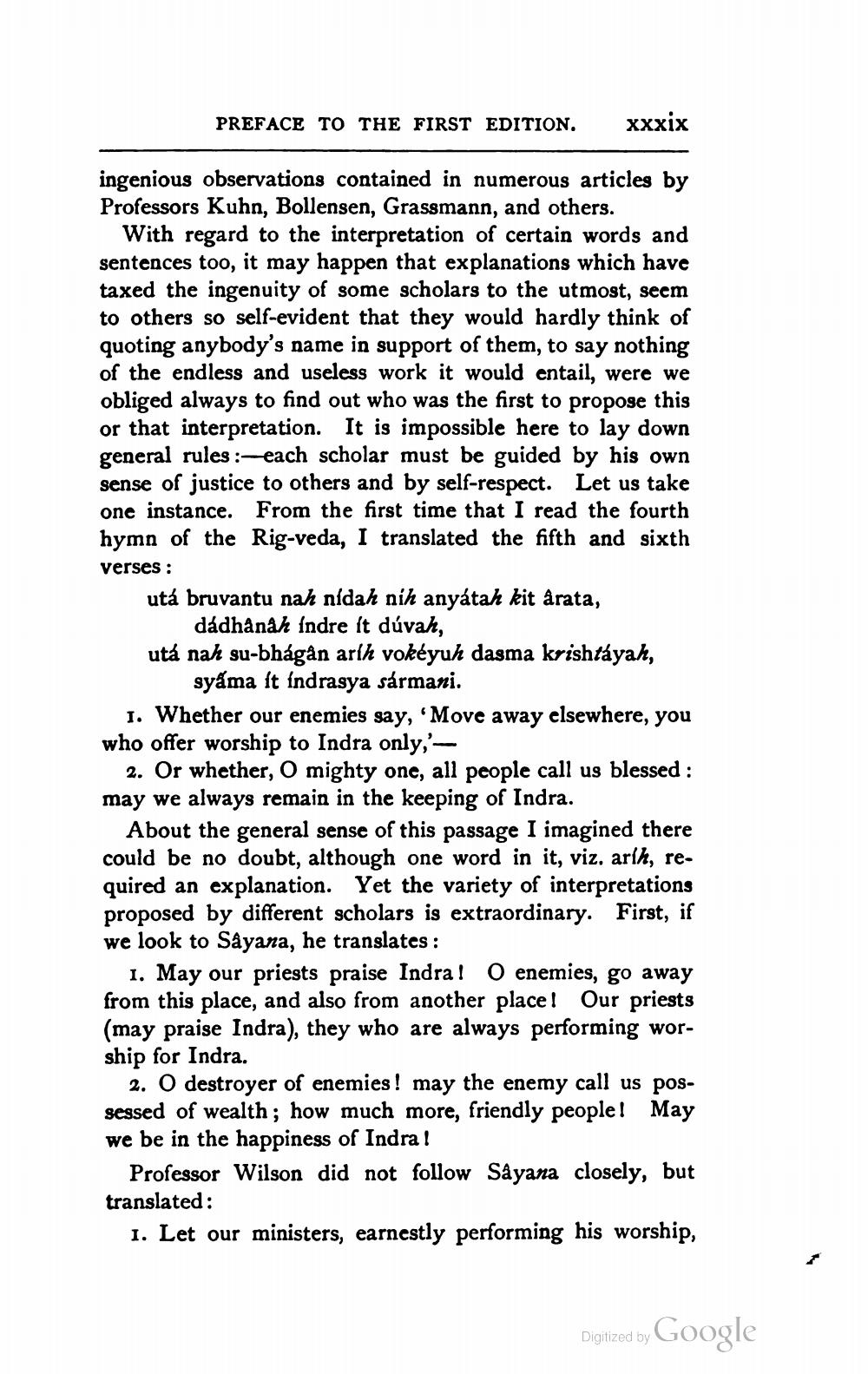________________
PREFACE TO THE FIRST EDITION.
xxxix
ingenious observations contained in numerous articles by Professors Kuhn, Bollensen, Grassmann, and others.
With regard to the interpretation of certain words and sentences too, it may happen that explanations which have taxed the ingenuity of some scholars to the utmost, seem to others so self-evident that they would hardly think of quoting anybody's name in support of them, to say nothing of the endless and useless work it would entail, were we obliged always to find out who was the first to propose this or that interpretation. It is impossible here to lay down general rules:-each scholar must be guided by his own sense of justice to others and by self-respect. Let us take one instance. From the first time that I read the fourth hymn of the Rig-veda, I translated the fifth and sixth
verses:
utá bruvantu nah nídah níh anyátah kit ârata, dádhanah fndre ít dúvah,
utá nak su-bhágân arih vokéyuh dasma krishtayah, syama ít indrasya sármani.
1. Whether our enemies say, 'Move away elsewhere, you who offer worship to Indra only,'
2. Or whether, O mighty one, all people call us blessed : may we always remain in the keeping of Indra.
About the general sense of this passage I imagined there could be no doubt, although one word in it, viz. arih, required an explanation. Yet the variety of interpretations proposed by different scholars is extraordinary. First, if we look to Sâyana, he translates:
1. May our priests praise Indra! O enemies, go away from this place, and also from another place! Our priests (may praise Indra), they who are always performing worship for Indra.
2. O destroyer of enemies! may the enemy call us possessed of wealth; how much more, friendly people! May we be in the happiness of Indra!
Professor Wilson did not follow Sâyana closely, but translated:
1. Let our ministers, earnestly performing his worship,
Digitized by Google




